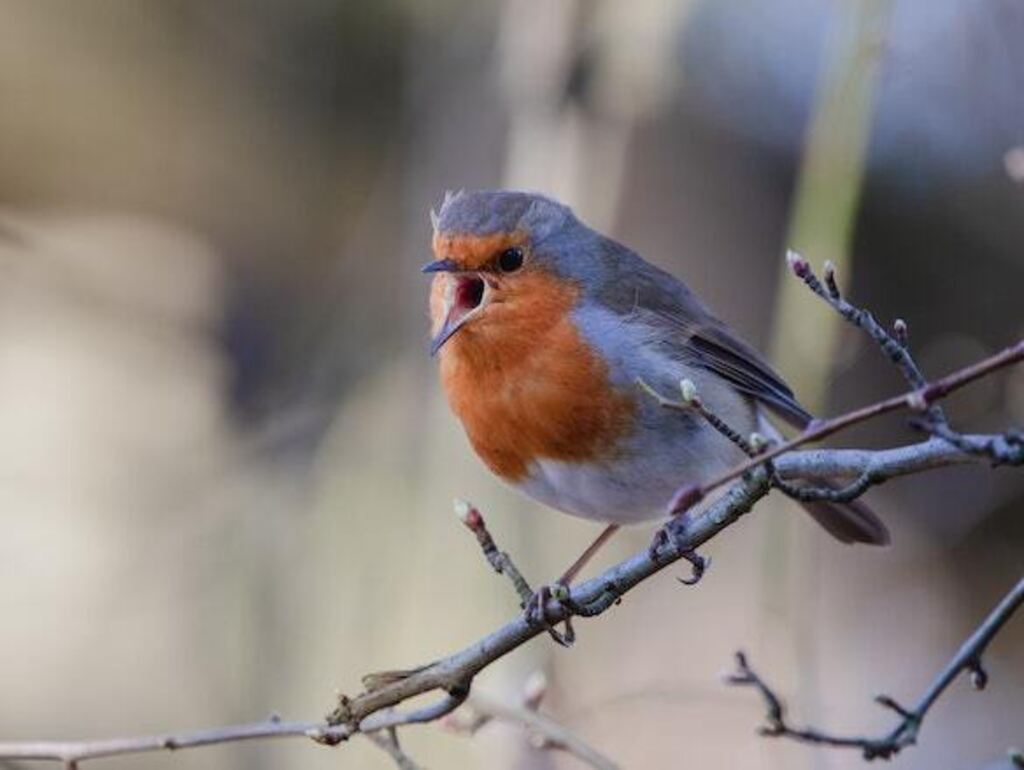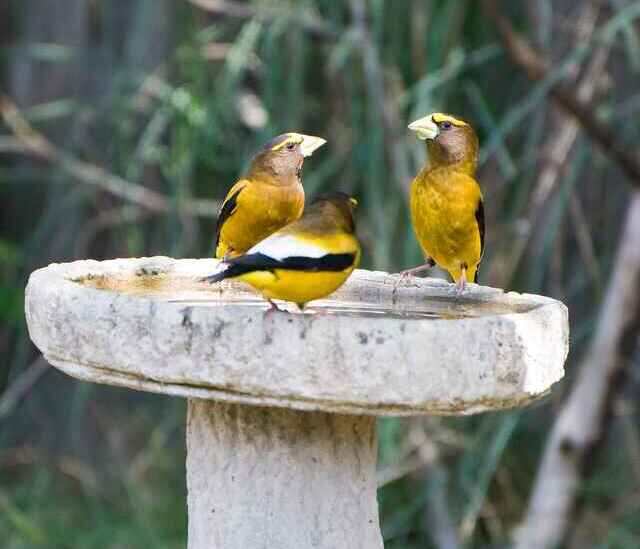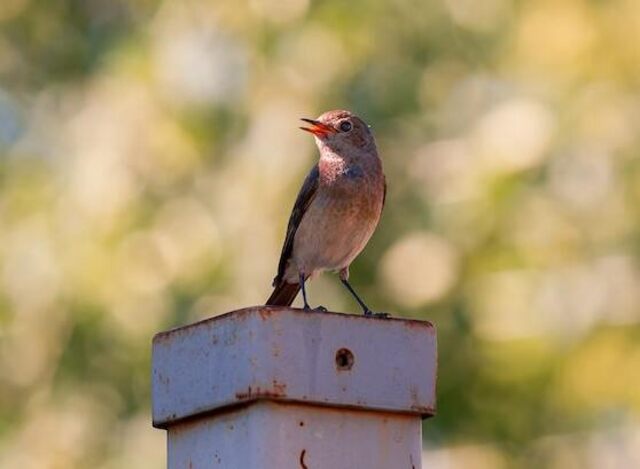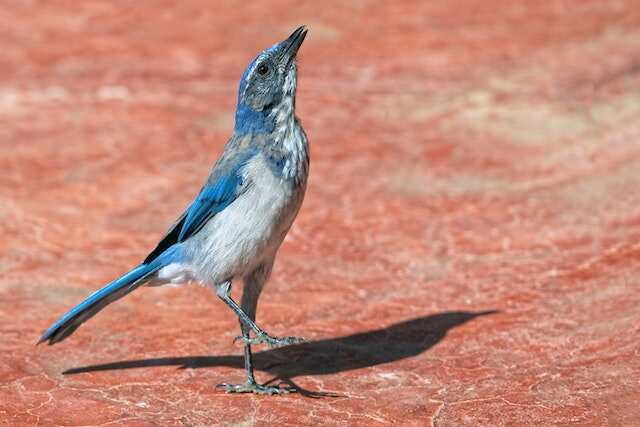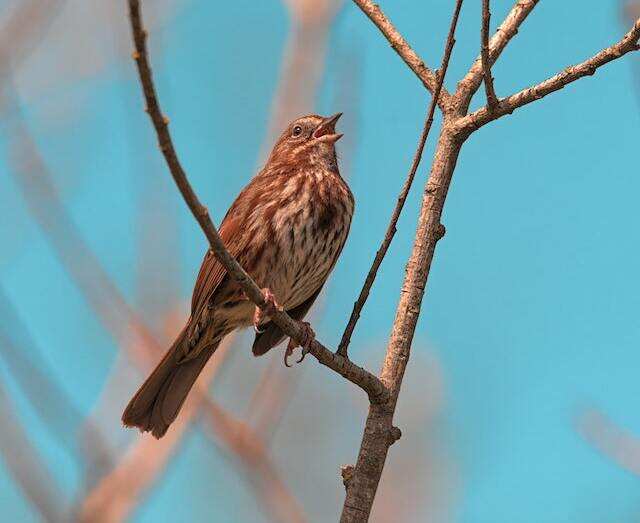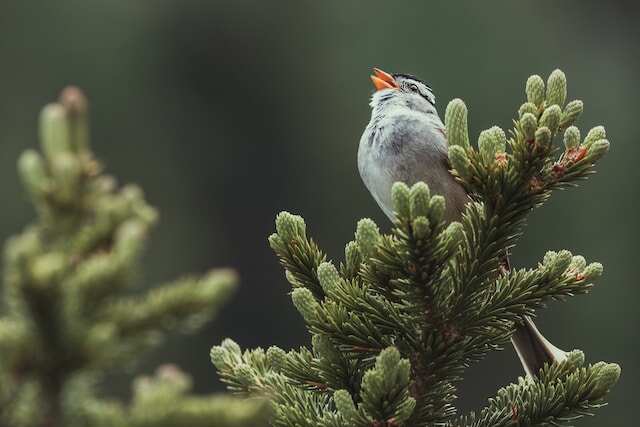Why are birds so loud in the morning? This is a question that has fascinated many people, who wake up to the beautiful and mysterious melodies of bird songs. In this article, we will explore the possible reasons behind this behavior and why it is important to understand bird behavior and ecology.
Table of Contents
- 1 Why Are Birds So Loud In The Morning?
- 2 Understanding Bird Songs
- 3 Reasons for Morning Chirping
- 4 Types of Birds That are Loud in the Morning
- 5 The Dawn Chorus Phenomenon
- 6 Coping with Morning Bird Noise
- 7 FAQs: Why Are Birds So Loud In The Morning
- 7.1 Why do birds sing in the morning?
- 7.2 What is the dawn chorus?
- 7.3 Do all birds sing in the morning?
- 7.4 Why are some birds louder than others in the morning?
- 7.5 What time do birds start singing in the morning?
- 7.6 Why are birds so loud in urban areas?
- 7.7 Can bird morning songs change throughout the year?
- 7.8 Why do birds suddenly stop singing in the morning?
- 7.9 What can I do to enjoy morning bird songs without disturbing my neighbors?
- 7.10 How can I encourage birds to visit my backyard in the morning?
- 7.11 Why do birds talk so much in the morning?
- 7.12 Why do birds scream in the morning?
- 7.13 Why do birds make noise at 5am?
- 7.14 What does it mean when birds are noisy?
- 7.15 What is the best way to deal with bird noise in the morning?
- 8 Conclusion
- 9 Author
Why Are Birds So Loud In The Morning?
Birds are louder in the morning for several reasons. One of the main reasons is that the cooler and denser air in the morning helps to carry their songs further. Additionally, there is less background noise in the morning, so their songs are less likely to be drowned out.
Furthermore, singing in the morning is an important way for birds to establish their territory and attract a mate. Therefore, they may be more vocal during this time, especially during breeding season.
Understanding Bird Songs
Bird songs are a fascinating and complex aspect of avian behavior. They serve many different purposes, from territorial defense to attracting mates, and are an essential part of a bird’s survival and reproduction. Understanding bird songs is essential for anyone interested in bird behavior and ecology.
How Birds Produce Sounds
Birds produce sounds using a specialized organ called the syrinx, which is located at the base of the trachea. Unlike mammals, which produce sounds using their larynx, birds can produce two independent sounds at once due to the unique structure of their syrinx. This allows them to produce more complex and varied vocalizations than other animals.
Different Types of Bird Vocalizations
Birds use a variety of vocalizations to communicate with each other, including songs, calls, and alarms. Songs are typically long, complex, and melodious, and are often used by males to attract mates or establish territory.
Calls are shorter and simpler than songs and are used for a variety of purposes, including maintaining contact with other birds and warning of danger. Alarms are loud, harsh calls used to alert other birds of potential threats.
The Role of Bird Songs in Communication and Behavior
Bird songs play a vital role in many aspects of bird behavior, including territorial defense, mate attraction, and parental care. Songs are often used by males to defend their territory and attract a mate, while calls are used for communication within the flock or family. Bird songs can also convey information about a bird’s health, status, and quality, making them an essential part of social interaction.
Table: Different Types of Bird Vocalizations
| Type of Vocalization | Description |
|---|---|
| Song | Long, complex, melodious vocalization used by males for territorial defense and mate attraction. |
| Call | Short, simple vocalization used for communication within the flock or family, or to warn of danger. |
| Alarm | Loud, harsh call used to alert other birds of potential threats. |
In conclusion, understanding bird songs is critical for anyone interested in bird behavior and ecology. The complexity and variety of bird vocalizations make them a fascinating aspect of avian biology, and their importance in communication and behavior cannot be overstated.
Reasons for Morning Chirping
Birds have evolved to be vocal creatures, and they use their songs to communicate with others in their species. The morning is a particularly important time for birds to vocalize, and there are several reasons why they do so.
Attracting Mates
One of the primary reasons birds chirp in the morning is to attract a mate. Males will often sing complex songs to demonstrate their fitness and attract a female partner. These songs can be quite elaborate, and birds will often incorporate a variety of different notes and rhythms into their vocalizations. Females are often drawn to males with the most complex and impressive songs, as they are seen as better mates and better able to provide for offspring.
Marking Territory
Birds are also very territorial creatures, and the morning is a good time for them to stake out their territory and let others know that they are there. Birds will often sing loudly to establish their presence and to warn off potential competitors. This is particularly important during mating season, when birds may be competing for limited resources like nesting sites and food.
Securing Food Supply
Another reason birds may chirp in the morning is to secure their food supply. Many birds are active feeders in the morning, and they may use their songs to coordinate their efforts and locate food sources. Birds will often sing in groups, and each bird will have a different song to help coordinate their movements and ensure that they are not competing for the same food.
Socialization and Solidarity
Birds are social creatures, and they often use their songs to socialize and maintain group cohesion. Morning chirping can help to establish social hierarchies and strengthen social bonds within a group. It can also help to deter predators by signaling to them that the group is aware of their presence and is on high alert.
Signaling Good Health
Finally, birds may chirp in the morning as a way of signaling good health to others in their species. Birds that are healthy and well-fed are better able to produce complex and elaborate songs, and other birds are often drawn to these songs as a sign of a healthy and desirable mate.
Thermoregulation
Additionally, birds may sing in the morning as a way to regulate their body temperature. Singing requires a lot of energy, and birds may use the process of singing to warm up their muscles and regulate their body temperature before starting their day.
Table: Types of Bird Songs and Their Functions
| Type of Bird Song | Function |
|---|---|
| Mating songs | Attracting mates |
| Territory songs | Marking territory, warning off competitors |
| Contact calls | Coordinating movements within a group |
| Alarm calls | Warning of predators or other threats |
| Begging calls | Soliciting food or attention from parents |
| Social songs | Strengthening social bonds within a group |
| Duet songs | Bonding between mates |
| Imitation songs | Mimicking sounds of other animals or objects |
| Whisper songs | Used by certain species to communicate quietly |
| Flight songs | Produced during flight as a form of communication |
Overall, there are many different reasons why birds chirp in the morning, and these songs serve a variety of important functions in the lives of these animals. By understanding the different types of bird songs and their functions, we can gain a deeper appreciation for these vocal creatures and their place in the natural world.
Types of Birds That are Loud in the Morning
When it comes to birds that are loud in the morning, there are a variety of species that fit the bill. Some of the most common species include robins, sparrows, thrushes, and blackbirds. Each of these species has a distinct vocalization that they use in the morning to communicate with other birds and mark their territory.
Common bird species and their morning vocalizations
- Robins: The American robin is one of the most recognizable bird species in North America. They are known for their bright red breast and their cheery, melodic songs that are a common sound in the morning. Robins use a variety of vocalizations, including chirps, whistles, and trills.
- Sparrows: There are many different species of sparrows, but they all share a similar song that is often heard in the morning. Sparrow songs are generally simple and repetitive, with a series of chirps and trills that are used to attract mates and mark territory.
- Thrushes: Thrushes are known for their beautiful, flute-like songs that are often heard in the morning. The most common species of thrush in North America is the wood thrush, which has a distinctive song that starts with a clear, ringing note and ends with a rapid series of trills.
- Blackbirds: Blackbirds are a group of birds that includes species like the red-winged blackbird and the common grackle. These birds are known for their raucous, harsh vocalizations that can be heard from a distance. Blackbird songs often include a mix of whistles, squawks, and rattles.
- Wrens: Wrens are small, energetic birds that are known for their bubbly and effervescent songs. The most common wren species in North America is the Carolina wren, which has a loud and ringing song that is often heard in the morning.
- Finches: There are many species of finches, and their songs can vary widely. Some finches, like the house finch, have a sweet and melodious song, while others, like the purple finch, have a more raspy and nasal tone. Regardless of the species, finches are often heard singing in the morning.
- Warblers: Warblers are a diverse group of birds that are known for their beautiful songs. Some warblers, like the yellow warbler, have a simple and repetitive song that is easy to recognize, while others, like the black-throated green warbler, have a more complex and musical song.
- Titmice: Titmice are small, active birds that are often heard chattering and calling to each other in the morning. The most common titmouse species in North America is the tufted titmouse, which has a distinctive two-note song that sounds like “peter-peter-peter”.
Differences in vocalizations between species
While many bird species have similar vocalizations in the morning, there are also some key differences between them. For example, robins have a bright, melodic song that is easy to identify, while blackbirds have a more raucous, harsh song.
Sparrow songs are often simpler and more repetitive than other bird species, while thrushes have a more complex, flute-like song. It is also important to note that male and female birds may have different vocalizations, and that some species may have regional variations in their songs.
This makes it all the more interesting to study the vocalizations of different bird species and appreciate the unique sounds they bring to the morning chorus.
The Dawn Chorus Phenomenon
The dawn chorus is a remarkable natural phenomenon that occurs when birds chirp or sing loudly in the early morning, usually around dawn. This behavior is most commonly seen in the spring and summer months, when breeding season is underway.
During this time, male birds sing to establish their territory and attract a mate, while females also sing to communicate their presence and readiness to mate.
Overview of the dawn chorus
The dawn chorus is a symphony of bird songs that typically lasts for about an hour around dawn. It is a complex, layered chorus that can include the songs of dozens of different bird species. The chorus can be heard in a wide range of habitats, from forests to suburban neighborhoods to city parks.
Explanation of why birds participate in the dawn chorus
There are several reasons why birds participate in the dawn chorus. For one, it is a way for male birds to establish their territory and attract a mate. By singing loudly in the early morning, males can communicate their presence and dominance to other males, while also advertising their availability to females.
In addition to its reproductive function, the dawn chorus may also serve other purposes. For example, some researchers have suggested that the chorus helps to synchronize bird activity, allowing different species to coordinate their foraging and other behaviors.
The chorus may also help to reduce predation risk by allowing birds to communicate about the presence of predators.
The importance of the dawn chorus for bird behavior and ecology
The dawn chorus is an important component of bird behavior and ecology. For one, it plays a key role in the breeding process, as male birds use their songs to attract mates and establish territories. The chorus may also help to maintain species diversity by allowing different species to coexist and share resources.
Furthermore, the dawn chorus has ecological implications beyond the bird community. It can affect the behavior of other animals, such as insect pollinators, which may be attracted to the sounds and scents of flowering plants. The chorus can also influence the activity patterns of predators and other animals that interact with birds and their habitats.
Overall, the dawn chorus is a fascinating and important aspect of bird behavior and ecology. Its complex and varied songs reflect the diversity of bird species and their interactions with each other and their environment.
By understanding the dawn chorus and its ecological implications, we can gain insights into the complex dynamics of the natural world.
Table: Factors influencing the dawn chorus
| Factor | Explanation |
|---|---|
| Breeding season | Occurs during breeding season |
| Male territoriality | Males sing to establish territory |
| Attracting mates | Males sing to attract mates |
| Female communication | Females also sing to communicate presence and readiness to mate |
| Foraging coordination | May help to synchronize bird activity |
| Reducing predation risk | Allows birds to communicate about predators |
| Ecological implications | Affects other animals, such as pollinators and predators |
Coping with Morning Bird Noise
As much as we appreciate the beauty of bird songs, it can become overwhelming when it’s too loud or happens too early. Fortunately, there are several strategies to manage morning bird noise in urban and suburban environments.
Tips for managing bird noise in urban and suburban environments
- Use earplugs or white noise machines: If you are sensitive to noise, consider using earplugs or white noise machines to block out the sounds of birds in the morning.
- Make bird-friendly areas in your backyard: Providing bird feeders, birdhouses, and bird baths can attract birds to designated areas of your backyard, keeping them away from the immediate vicinity of your home.
- Play recorded bird calls to distract them: This can be a useful tool to help redirect bird noise away from your home or to encourage them to relocate to a more desirable location.
- Plant trees and shrubs: Trees and shrubs can help absorb sound and provide natural habitats for birds.
Understanding the importance of bird habitats
It’s essential to understand the role of bird habitats in the ecosystem to appreciate and manage their behavior. Birds play an essential role in pollination, pest control, and seed dispersal, making them valuable to the environment.
By providing suitable habitats, we can help support the bird population and maintain the balance of our ecosystem. One way to create bird-friendly habitats is by planting native trees, shrubs, and plants that provide food, shelter, and nesting sites.
Additionally, limiting the use of pesticides and chemicals can help protect birds and their habitats from harm.
| Tips for Managing Morning Bird Noise | Importance of Bird Habitats |
|---|---|
| Use earplugs or white noise machines | Plant native trees, shrubs, and plants |
| Make bird-friendly areas in your backyard | Limit the use of pesticides and chemicals |
| Play recorded bird calls to distract them | Create food, shelter, and nesting sites for birds |
| Plant trees and shrubs | Support pollination, pest control, and seed dispersal |
FAQs: Why Are Birds So Loud In The Morning
Why do birds sing in the morning?
Birds sing in the morning for a variety of reasons, including establishing their territory, attracting mates, and communicating with other birds.
What is the dawn chorus?
The dawn chorus is a natural phenomenon where birds sing together in the morning, often before sunrise.
Do all birds sing in the morning?
No, not all birds sing in the morning. Some birds, like owls, are nocturnal and are more active at night.
Why are some birds louder than others in the morning?
Some birds may be louder than others in the morning due to their size, vocal ability, and purpose for singing.
What time do birds start singing in the morning?
Birds can start singing as early as 4 or 5 a.m., but the exact time can vary depending on the species and location.
Why are birds so loud in urban areas?
Birds may be louder in urban areas due to the lack of natural predators and the abundance of food sources.
Can bird morning songs change throughout the year?
Yes, birds’ morning songs can change throughout the year due to changes in breeding cycles and environmental factors.
Why do birds suddenly stop singing in the morning?
Birds may stop singing in the morning once they have established their territory and found a mate.
What can I do to enjoy morning bird songs without disturbing my neighbors?
You can listen to bird songs with headphones or visit a nearby park or nature reserve to enjoy the morning chorus.
How can I encourage birds to visit my backyard in the morning?
You can provide bird feeders and bird baths in your backyard to attract birds and encourage them to visit in the morning.
Why do birds talk so much in the morning?
Birds are vocal in the morning because it’s the best time to communicate with other birds. They use their songs to establish territories, attract mates, and maintain social bonds.
Why do birds scream in the morning?
Birds may scream in the morning as a warning to potential predators or to defend their territory from intruders.
Why do birds make noise at 5am?
Birds may start making noise at 5am because it’s the time when the sun begins to rise, signaling the start of a new day.
What does it mean when birds are noisy?
Birds make noise for a variety of reasons, including communication, establishing territory, attracting mates, and warning of predators.
What is the best way to deal with bird noise in the morning?
Some ways to deal with bird noise in the morning include using earplugs, creating bird-friendly areas in your backyard, and playing recorded bird calls to distract them. However, it’s important to remember that birds play an important role in the ecosystem and should be respected.
Conclusion
In conclusion, morning bird songs are a beautiful and fascinating part of nature, with many reasons behind the chirping and the dawn chorus. From mating to territorial marking and foraging, birds use their songs to communicate and survive.
It is crucial to understand the importance of bird conservation and habitat preservation to ensure their survival in the future. Ultimately, we should appreciate and cherish the beauty and importance of morning bird songs in our world.

